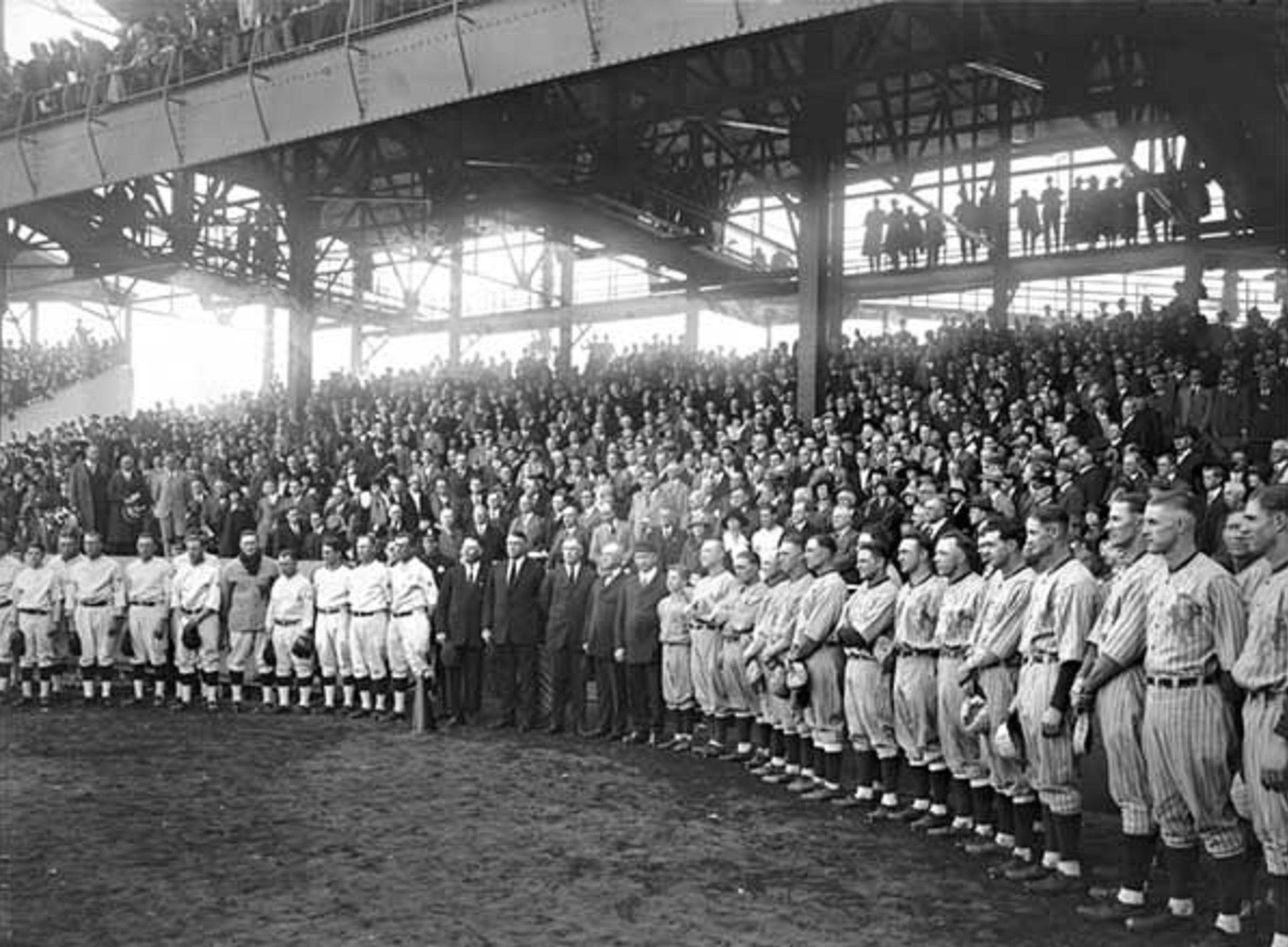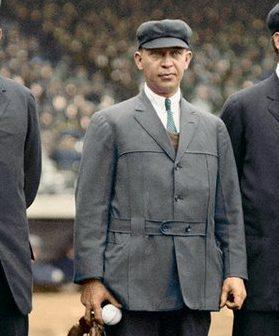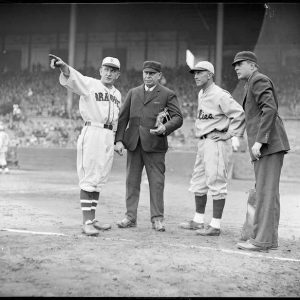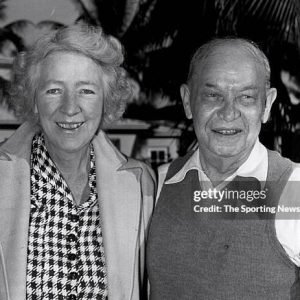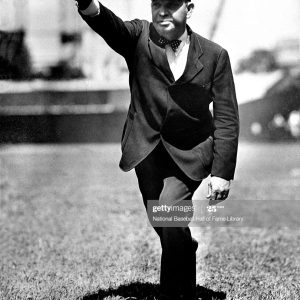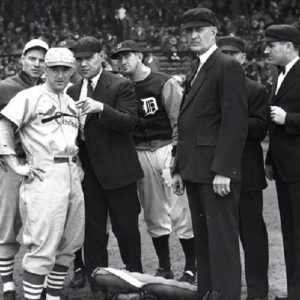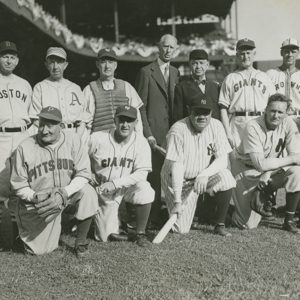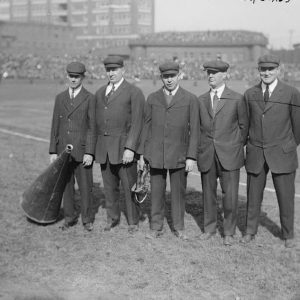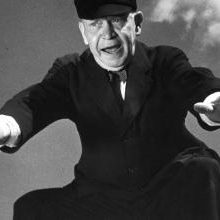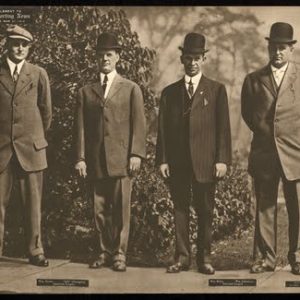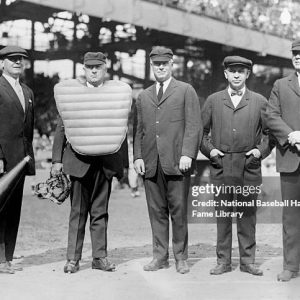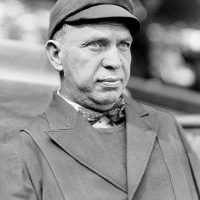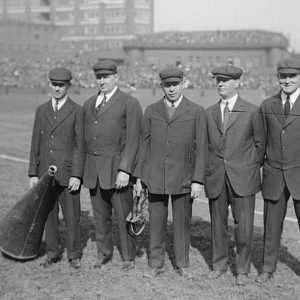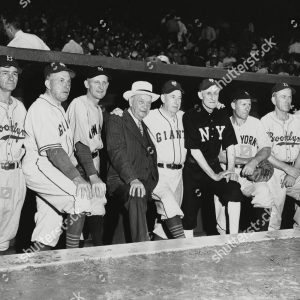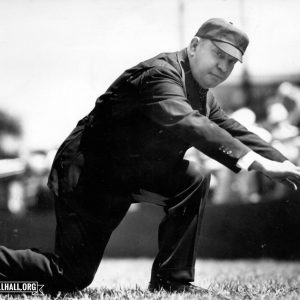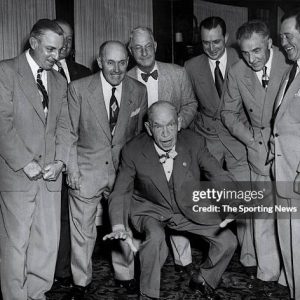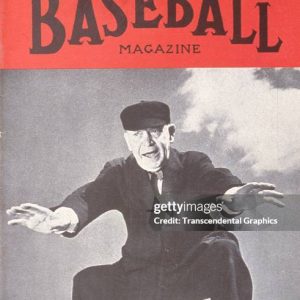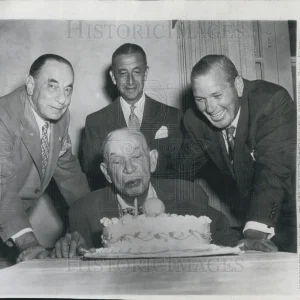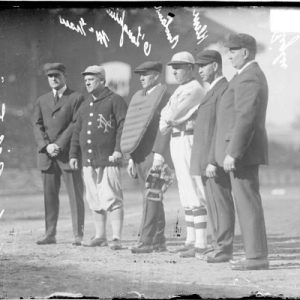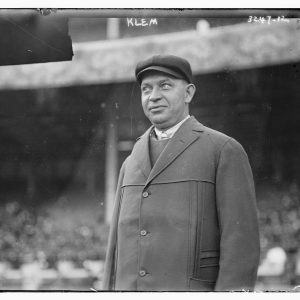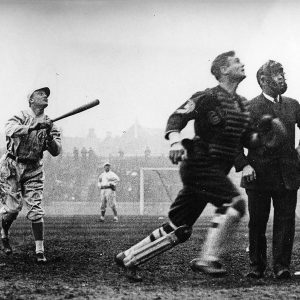Featured Photo Above:
1924 World Series, Giants vs. Senators

Baseball History Comes Alive Now Ranked As a Top Five Website by Feedspot Among All Baseball History Websites and Blogs!
(Check out Feedspot's list of the Top 35 Baseball History websites and blogs)
Guest Submissions from Our Readers Always Welcome! Click for details
Visit the Baseball History Comes Alive Home Page
Subscribe to Baseball History Comes Alive
Free Bonus for Subscribing:
Gary’s Handy Dandy World Series Reference Guide
Bill Klem Photo Gallery
We’re happy to welcome Mike Janacek back today with an interesting essay giving some equal time to the “Men in Blue.” Mike shares with us some interesting information about the career of Hall of Fame umpire Bill Klem, who is not only recognized for introducing many innovations to the umpiring profession but is also considered by many to be the greatest umpire in baseball history. -GL
“And Don’t Call Me Catfish!”
The Story of Hall of Fame Umpire, Bill Klem
“Baseball is more than a game to me…it’s a religion” -Bill Klem
William Joseph Klimm was considered the ‘Father of Modern Baseball Umpires.’ Born on February 22, 1874, in Rochester, New York. 1 An arm injury ended his baseball career, and he worked as a bartender and a shoemaker, then worked on bridge construction. After reading about major league umpire Silk O’Loughlin, he wanted to pursue a baseball career.
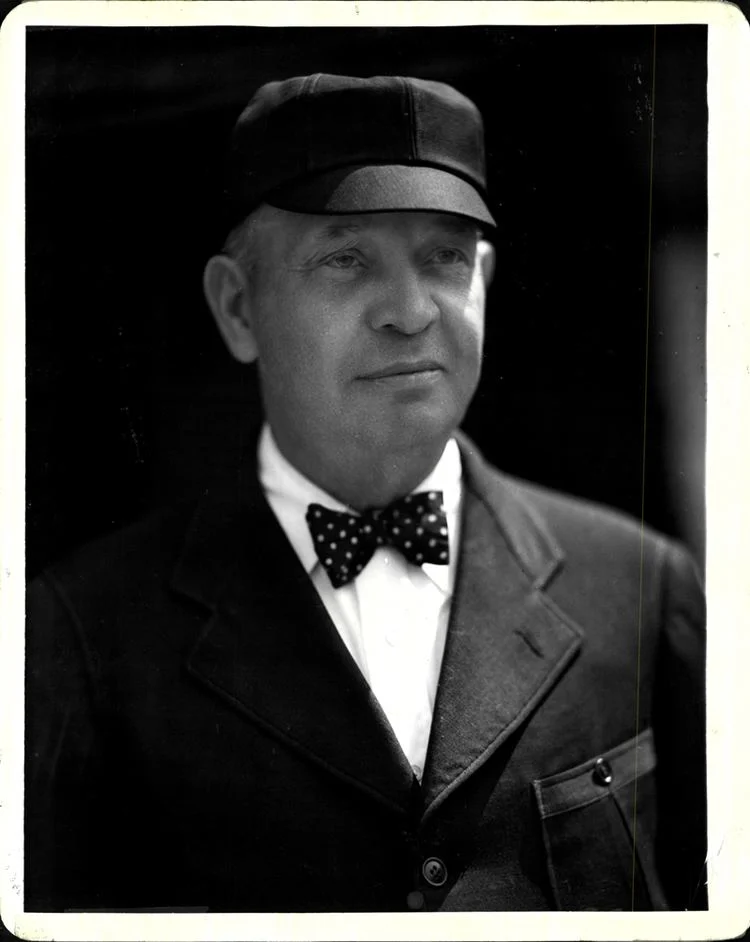
Klem was a National League umpire from 1905-1941 and umpired in a major league record 18 World Series Championships. He began umpiring in 1902 in the Connecticut League, making $7.50 per game, and he moved to the New York State League the following year. “If the home team lost, you got an awful amount of abuse with your money.” 2 When Klem had a run-in with Jim O’Rourke, league secretary and a team manager, O’Rourke threatened that he would see that Klem would not umpire another game in the league; Klem responded, “Maybe so, but I’ll umpire this one.” 3
In 1905, after a year in the American Association, he started the line in the dirt and told irate players and managers, “Do not cross the Rio Grande.” Those who did were immediately ejected from the game. 2
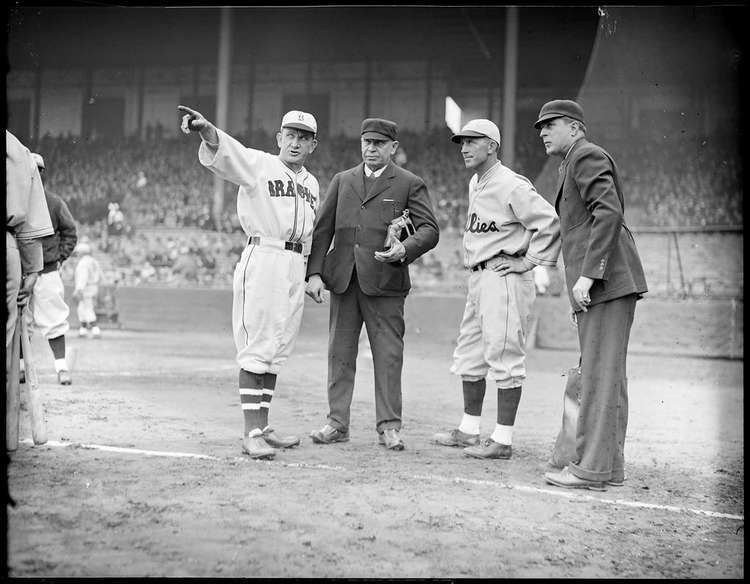
He began umpiring in the National League. In 1905, following his uncle’s lead, Bill changed his name from Klimm to Klem as it sounded better for an umpire. Klem entered a profession known for its unsavory and dishonest play. He soon developed a reputation as a no-nonsense umpire with a strong sense of fairness. His toughness on the field was reflected in his early run-ins with managers, players, and owners. In his first year in the National League, he handed out 25 ejections. Klem holds the major league record of 279 game ejections, although one source suggests the total was 358. Records were not meticulously kept in the early 1900s. In a game in 1905, Klem fined some of the Pittsburgh Pirates players for mocking his calls, and in 1914, he ejected 24 New York Giants, the entire team, for name-calling.
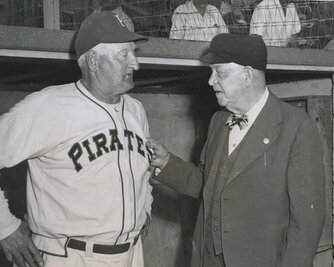
The league had introduced a policy of fining players for abusing umpires, and Klem enforced that policy. Klem had an excellent eye for balls and strikes and, in the early days, often was the only umpire on the field. Klem was a very colorful character and was instrumental in bringing innovation and change to the game. Allegedly, he was the first to use hand and arm signals to indicate balls and strikes, and he is credited with the first use of an inside chest protector for umpires, having been given the idea by others. He was the first to ‘work the slot.’ 4
Klem was referred to as ‘The Old Arbitrator,’ a nickname he liked, but some players were prone to refer to him as ‘Catfish,’ a term he hated. “All you had to do was call him Catfish, and out of the game you’d go. Maybe it was because he had rather prominent lips. 5
In a career that lasted 37 years, Klem umpired in a record 18 World Series Championships, ten more than anyone else. He was one of the umpires for the first All-Star game in 1933 and again in 1938. Late in 1940, Klem was hit by an infield grounder and realized he was losing his edge, and in another game, he missed a tag. He retired at the season’s end and was appointed as head of National League umpires. Klem umpired in 5,375 games and another 103 World Series games. In his first 16 years, Klem worked eight-nine percent of his games from behind the plate. The two-umpire rule was not introduced until 1911, but Klem continued to work primarily as the home plate umpire.
The Hall of Fame Calls
In 1953, Bill Klem and Tom Connolly were the first umpires elected to the Hall of Fame. Bill passed away in September 1951 from a heart attack. He had been suffering from heart issues for a couple of years. A week before he died, he commented to his wife. “This is my last game, and I’m going to strike out this time.” 6 The Houston chapter of the Baseball Writers’ Association of America established the Bill Klem Award in 1962 to honor the outstanding National League umpire. Bill Klem was a trailblazer and innovator, a character and an honest man in the game of baseball – in a time when that was rare.
Bill Klem Quotes
“It ain’t nothin’ till I call it.”7
“Son, when you pitch a strike, Mr. Hornsby will let you know.” Said to a rookie pitcher questioning a pitch that was called a ball.8
“The best umpired game is the game in which the fans can not recall the umpires that worked it.”7
“Gentlemen, he was out because I said he was out.”8
“The most cowardly thing in the world is blaming mistakes upon the umpires. Too many managers strut around on the field trying to manage the umpires instead of their teams.”1
Mike Janacek
We’d love to hear what you think about this or any other related baseball history topic…please leave comments below.
Notes and Sources:
1 Thebaseballumpire.com. https://thebaseballumpire.com/bill-klem/.
2 Collier’s Weekly. March 31, 1951. page 62, 64.
3 Roer, Mike. Orator O’Rourke: The Life of a Baseball Radical. McFarland. Page 234 ISBN 0786423552.
4 Collier’s Weekly April 14, 1951. page 31. Working the slot is the position an umpire assumes between the batter and catcher to see the strike zone better.
5 Ritter, Lawrence S. “The Glory of Their Times”. MacMillan. September 26, 1966.
6 Bill Klem. Veteran Umpire dies of Heart Attack at 77. Chicago Tribune, September 1951.
7 Brainyquote.com. Bill Klem. https://www.brainyquote.com/authors/bill-klem-quotes.
8 Baseball-reference.com. Bill Klem. https://www.baseball-reference.com/bullpen/Bill_Klem.
Baseballhallof fame.com. Bill Klem. https://baseballhall.org/hall-of-famers/klem-bill
Anderson, David W. Sabr.org. Bill Klem. https://sabr.org/bioproj/person/bill-klem/
Wikipedia.com. Bill Klem. https://en.wikipedia.org/wiki/Bill_Klem
Wikipedia.com. The Umpire. https://en.wikipedia.org/wiki/Umpire_(baseball)
Subscribe to Baseball History Comes Alive. FREE BONUS for subscribing: Gary’s Handy Dandy World Series Reference Guide. https://wp.me/P7a04E-2he
